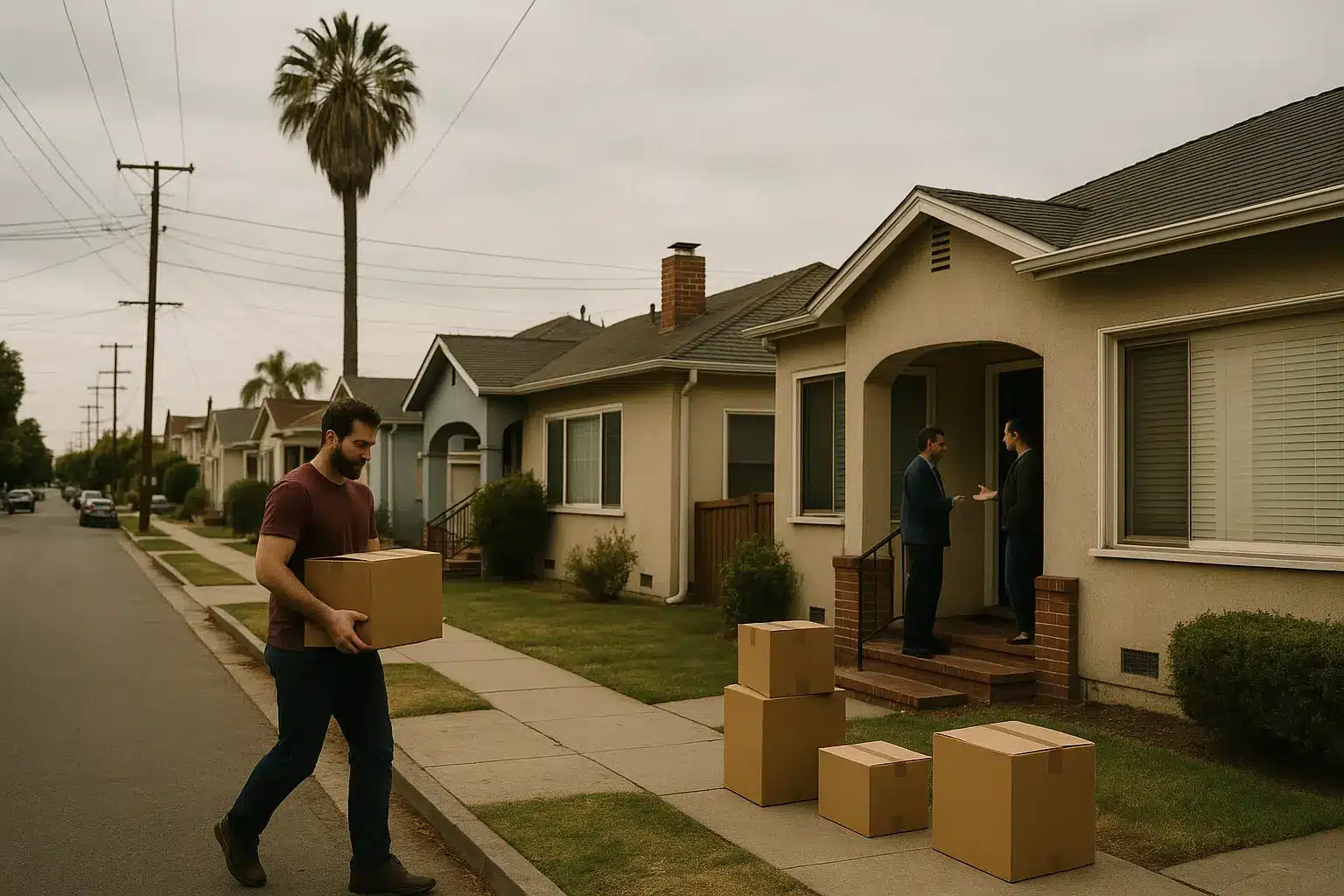
This post was last modified on November 1, 2025.
As California’s eviction protections evolve in 2025, you’ll notice significant changes aimed at enhancing tenant stability and rights. Extended response times for unlawful detainer complaints and stricter regulations on no-fault evictions are just the beginning. Additionally, new protections for victims of abuse and updated guidelines for security deposits will reshape the rental environment. These shifts raise important questions about the implications for both tenants and landlords moving forward.
Extended Response Time for Tenants
As California implements new eviction protections in 2025, the extended response time for tenants significantly alters the legal framework.
The shift from five to ten court days for responding to unlawful detainer complaints provides tenants with a key opportunity to develop effective tenant defense strategies. This additional time, particularly important if notice is served by mail, can play a pivotal role in crafting a legal response.
However, expect eviction case delays as landlords may face longer timelines before regaining possession of their properties.
These alterations not only enhance procedural fairness but also reflect a broader aim to mitigate eviction hardships. Consequently, both tenants and landlords must adapt to this new reality in California’s evolving legal environment. Additionally, the extended process may result in decreased property values as landlords struggle with prolonged vacancies and reduced rental income.
Stricter No-Fault Eviction Rules
With the implementation of stricter no-fault eviction rules in California, landlords face heightened requirements that greatly impact their ability to evict tenants.
The legal definitions for no-fault evictions have expanded, necessitating thorough no-fault eviction documentation to justify claims, such as permits for substantial renovations or evidence of owner move-in regulations.
Landlords must also provide relocation assistance and adhere to increased notice periods depending on tenant duration. Additionally, they must demonstrate bona fide intent to occupy the unit post-eviction, with compliance monitored by local authorities.
Failure to meet these conditions can result in legal penalties and fines, making it significant for landlords to navigate the new environment carefully to avoid costly repercussions. Moreover, these changes are part of a broader trend aimed at enhancing tenant protections that underscore the state’s commitment to housing stability and equity.
Enhanced Lock Change Protections
The introduction of stricter no-fault eviction rules in California has paved the way for enhanced lock change protections, greatly impacting tenant safety.
Now, if you’re a victim of abuse, you can request an immediate lock change, and landlords must comply within 24 hours, covering the costs. Even if your lease prohibits it, you can change locks for your protection.
If you initiate a lock change, landlords must reimburse you for reasonable expenses, guaranteeing your security isn’t compromised.
Additionally, landlords can’t change locks or evict you without a court order, reinforcing tenant safety.
These updated lock change procedures not only empower tenants but also establish a legal framework that upholds both tenant rights and landlord interests. The importance of affordable housing availability is also underscored by these reforms, ensuring that tenant security is prioritized alongside housing needs.
Updated Security Deposit Requirements
While maneuvering through the complexities of rental agreements in California, it’s important to understand the updated security deposit requirements that took effect in 2024 and will continue to shape tenant-landlord interactions in 2025.
California now imposes security deposit limits of one month’s rent for most residential units, excluding first month’s rent. For landlords with two or fewer properties, a cap of two months’ rent remains for furnished units.
Additionally, starting April 1, 2025, itemized deductions from security deposits must be supported by detailed statements and photos, ensuring transparency. Deductions should only cover actual damages, not normal wear and tear.
Understanding these changes will help you navigate your rights and responsibilities as a tenant effectively.
Changes to Application Screening Fees
Understanding your rights regarding application screening fees is just as important as grasping the updated security deposit requirements.
In 2025, screening fee regulations in California, particularly in Berkeley, cap fees at $66.92, adjusted annually by the CPI. Landlords must provide itemized costs and refund unused portions promptly.
If no rental units are available, charging fees is prohibited unless applicants agree in writing. Additionally, under the new Sequential Application Process, landlords must process applications in the order received, ensuring fairness.
Refunds for unselected applicants are due within 7 days of notification or 30 days post-application.
Frequently Asked Questions
What Resources Are Available for Tenants Seeking Legal Assistance?
You have access to various resources for legal aid and tenant advocacy. Utilize hotlines, legal clinics, and online tools that provide guidance, support, and representation to help navigate eviction issues effectively. Explore these key options today.
How Do These Laws Affect Eviction Rates in California?
These laws greatly lower eviction rates in California, promoting housing stability. By providing legal protections and rental assistance, they mitigate eviction trends, allowing tenants to negotiate and remain in their homes, despite ongoing economic challenges.
Are There Penalties for Landlords Who Violate These Regulations?
Yes, there are penalties for landlords violating regulations, ensuring landlord accountability. Noncompliance can lead to case dismissals, increased costs, and legal claims, safeguarding tenant rights and promoting fair housing practices in the eviction process.
Can Tenants Appeal Eviction Judgments Under the New Laws?
Yes, you can appeal eviction judgments under the new laws. Filing eviction appeals involves specific legal processes and deadlines, so it’s important to seek legal assistance to navigate these complexities effectively and protect your rights.
How Can Tenants Report Landlord Noncompliance With These Protections?
You can report landlord noncompliance by filing tenant complaints with local housing authorities, using California’s Department of Consumer Affairs complaint portal, or contacting tenant hotlines. Document everything to strengthen your case during reporting.




